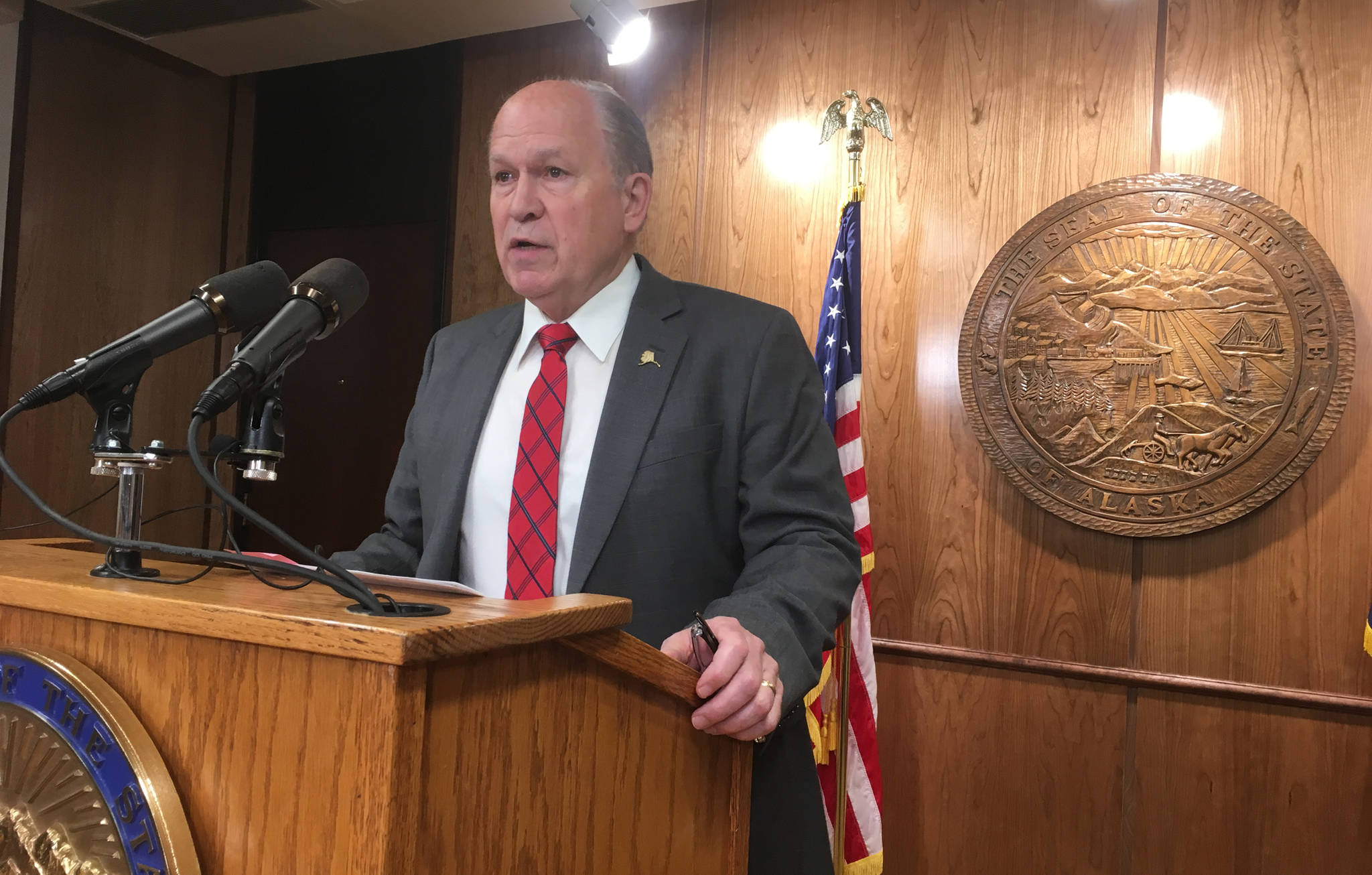After its first special session ended in failure, the Alaska Legislature is still searching for a way to avert a July 1 statewide government shutdown.
On Monday, lawmakers are poised to renew debates on how to bridge a political gap between the coalition House Majority and the Republican-led Senate Majority.
Gov. Bill Walker called both the House and Senate into special session on Friday, but after brief floor sessions, each body adjourned until Monday.
Speaking to reporters Friday afternoon, Walker said he is confident that the Legislature can avert an economically catastrophic shutdown. For better or worse, however, the issue is largely out of his hands. Under the Alaska Constitution, the Legislature is the body that approves the state’s budget, and it’s the Legislature that must reach an agreement.
“The worst thing we could do is have government shut down … and have even greater uncertainty out there than we have today,” Walker said.
Walker does have the power to set the agenda for the special session, and his to-do list includes just one item: a state operating budget.
Walker said he hasn’t changed his mind about the need for new revenue to erase a $2.7 billion annual deficit, but the state has enough savings to cover that deficit for one year without significant consequences.
“At this point, I must focus solely on one issue and one issue alone, and that is the operating budget so we do not have a shutdown in this state,” he said.
The Senate Majority agrees with Walker’s approach, its leaders said in a press conference Friday noon.
“Let’s focus on the people of Alaska instead of trying to get other items onto the agenda that are not on the agenda,” said Sen. Lyman Hoffman, D-Bethel and co-chairman of the Senate Finance Committee. “Let’s close this down and let’s get the people’s business done.”
The House Majority appears to be standing firm in its requests for a plan that addresses both Alaska’s long-term deficit and the pending government shutdown.
The House Majority’s plan, passed through the House months ago, includes new taxes that have not been endorsed by the Senate. While both the House and Senate favor diverting some money from the earnings of the Alaska Permanent Fund (reducing Permanent Fund Dividends in the process), the House is asking for more, including more money from the oil industry and some kind of progressive tax to balance the regressive elements of a dividend cut.
“We said from the very beginning that we were not going to be taking the only source of new revenue being a reduction in PFDs. That became a crux of the problem,” said Rep. Paul Seaton, R-Homer and co-chairman of the House Finance Committee.
On Thursday night, the House Majority attempted to force the Senate into action by passing a budget and immediately adjourning. That left the Senate with a choice on Friday: Pass the House’s budget, effectively agreeing to its demands, or reject the budget and continue the countdown to shutdown.
The Senate chose the latter path.
Senate President Pete Kelly, R-Fairbanks, called the House’s “unorthodox adjournment” and strategy unacceptable and said it employed “trickery” to force a decision.
Senate Rules Chairman Kevin Meyer, R-Anchorage, said the House’s take-it-or-leave-it approach violated the norms of negotiation and compromise.
“You just don’t do that. You just don’t do that, out of respect to the process,” he said. “I was personally shocked by that.”
The failure of the House’s move leaves the Legislature in an uncertain position. If the House Majority gives up its demand for a long-term deficit-fighting plan, it might avert a shutdown, but it would weaken its bargaining position in the long run.
Senate Minority Leader Berta Gardner, D-Anchorage, pointed out Friday that the budget “is the tool that allows for negotiation on other things.”
If the House and Senate pass a shutdown-averting deal that doesn’t address the deficit, “it makes it harder to bring the Senate to the table” on other issues.
From the Senate’s perspective, wavering on the House’s demands would mean backtracking on adamantine opposition to new taxes.
Speaking to reporters, Kelly said the House can have some victories if it comes to the table and begins negotiating on the operating budget alone.
“There’s plenty of compromise to come at the table if they will come,” he said.
Contact reporter James Brooks at james.k.brooks@juneauempire.com or call 419-7732.

